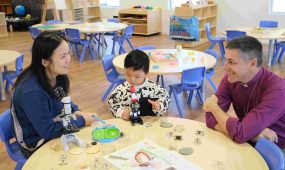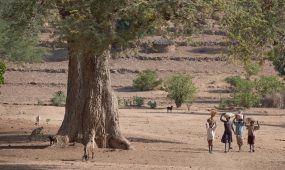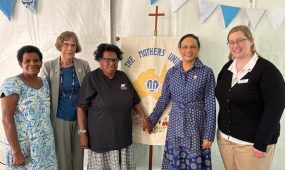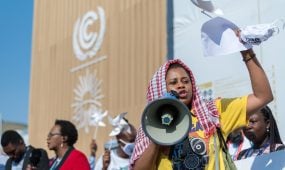Referendum question on the Aboriginal and Torres Strait Islander Voice proposed
News
At the recent Garma Festival, held annually in Gulkula in the Northern Territory, the movement for a referendum on an Aboriginal and Torres Strait Islander Voice to Parliament took a huge step forward
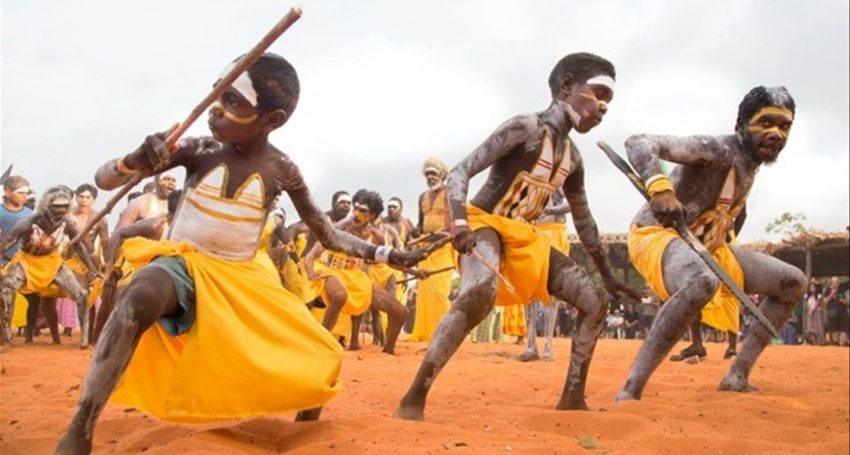
At the recent Garma Festival, held annually in Gulkula in the Northern Territory, the movement for a referendum on an Indigenous Voice to Parliament took a huge step forward.
In his Garma address, Prime Minister Anthony Albanese clearly laid out both the proposed change to the Constitution for a Voice, and the proposed referendum question.
“We should consider asking our fellow Australians something as simple, but something as clear as this: ‘Do you support an alteration to the Constitution that establishes an Aboriginal and Torres Strait Islander Voice?’” Mr Albanese said.
Mr Albanese said he is putting forward the question as a “basis for dialogue”.
He said it is not a final form of words, but rather “something to give the conversation shape and direction.”
“The Voice will endure outside the ups and downs of election cycles…a body with the perspective, the power and the platform to tell the Government and the Parliament the truth about what is working and what is not – to tell the truth with clarity, with conviction,” he said.
“Our starting point is a recommendation to add three sentences to the Constitution in recognition of Aboriginal and Torres Strait Islander peoples as the First Peoples of Australia.
“One, there shall be a body, to be called the Aboriginal and Torres Strait Islander Voice.
“Two, the Aboriginal and Torres Strait Islander Voice may make representations to Parliament and the Executive Government on matters relating to Aboriginal and Torres Strait Islander Peoples.
Advertisement
“And, three, the Parliament shall, subject to this Constitution, have power to make laws with respect to the composition, functions, powers and procedures of the Aboriginal and Torres Strait Islander Voice.”
Inspired by Uluru Statement From the Heart, Archbishop Phillip Aspinall made a formal submission on behalf of our Diocese in support of the Voice last year.
In response to the Garma announcement, the Archbishop said that the Voice will foster meaningful listening, which will help to close the gap between Aboriginal and Torres Strait Islander peoples and non-Indigenous Australians.
“In any context, deepening understanding and building bridges leading to Reconciliation begin with listening – deep, careful, sustained listening,” Dr Aspinall said.
“Embedding a commitment to such sustained, deep listening holds great promise as a basis for closing the health and life expectancy gap that still exists between First Nations peoples and non-Indigenous Australians.”
Chair of the Anglican Church Southern Queensland’s Reconciliation Action Plan Working Group, Wakka Wakka man The Rev’d Canon Bruce Boase, said that by voting “yes”, Aboriginal and Torres Strait Islander peoples will be meaningfully heard on matters that impact their communities.
Advertisement
“To support a vote for a First Nations Voice to Parliament means a step towards maturity as a nation,” Canon Boase said.
“By saying ‘yes’ means the first step in a long process.
“This process will see First Nations peoples, all over the land, being able to be heard on issues that directly concern them.”
From The Heart, the campaign stemming from the 2017 National Constitutional Convention that issued the Uluru Statement From the Heart, strongly supports the referendum question as drafted, and the proposed amendment to the Constitution.
From The Heart Director Dean Parkin said that the Garma announcement is a significant development in the ongoing consultation process.
“This is an important and positive step forward from the Government,” Mr Parkin said.
“By delivering the proposed Constitutional amendment and question, the Prime Minister has provided the ‘destination’ for the referendum on a Voice so voters have plenty of time to understand what they will be asked.
“Between now and then, more information will be provided about the Voice, so voters understand what they are supporting.
“The Government has said there will be an ‘exposure document’ that sets out key elements of the Voice by Christmas.
“There is more consultation to be done and plenty of time to be included in the conversation, but this is a meaningful and important progress.
“We are deeply grateful to our supporters, who come from all walks of Australian life.
“Your support and commitment has helped us grow momentum toward our goal over the last five years.”
The Indigenous Voice to Parliament included in the Constitution is the first of the Uluru Statement From the Heart’s two reforms.
Mr Parkin recently spoke on the ABC’s 7.30 Report about the overwhelmingly positive response he has had since the Uluru Statement From the Heart was issued to the Australian people five years ago.
“I’ve had the great privilege of having thousands of conversations with people across the country and there is an enormous amount of goodwill out there to make this happen,” Mr Parkin said.
“People are very interested in the idea of recognising Aboriginal and Torres Strait Islander peoples in the Constitution, and when you talk to them about a Voice and the idea of giving people on the ground a say over the issues that affect their families and their communities, actually, people just get it.”
Garma is an annual festival held in Gulkula, a significant Yolngu ceremonial site, about 40km from Nhulunbuy on the Gove Peninsula in the Northern Territory.
Over four days, festival guests are immersed in the rich cultural heritage of Yolngu hosts, experiencing traditional miny’tji (art), ancient story-telling, manikay (song) and bunggul (dance).
The theme of this year’s Garma Festival was Nhanga Ngathiilyura, a Yolngu phrase meaning “’look ahead towards the future”.


